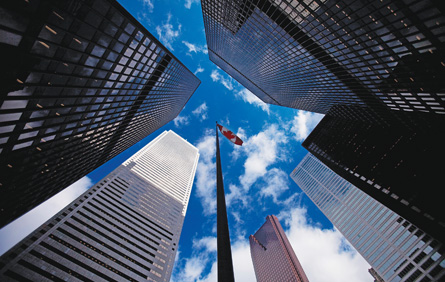Sparking speculation that further mortgage rule changes could be in the offing

Add Canada’s largest bank to the growing chorus of lenders worrying about unsustainable price growth in Toronto.
“You’re seeing 20% house price growth in a market where you shouldn’t see that much,” Dave McKay, the chief executive of Royal Bank of Canada, recently told the Financial Post. “That’s concerning. That’s not sustainable. Therefore, I do believe we are now at a point where we need to consider similar types of measures that we saw in Vancouver.”
Vancouver, of course, made headlines last year when it announced a 15% tax on foreign homebuyers – a policy that was met with equal parts derision and support from industry players.
The move is thought to have played a role in dampening Vancouver’s hot housing market; a similar one could have a similar effect in Toronto, depending on how much influence foreign buyers actually have on propping up prices (no rock solid data yet exists).
RBC joins the Bank of Montreal in stoking the fire of fear that Toronto’s market is blazing out of control.
“Let’s drop the pretence. The Toronto housing market—and the many cities surrounding it—are in a housing bubble,” Doug Porter, chief economist for BMO Bank said in a recent report. “Everyone may have a slightly different definition of what a bubble is, but most can agree it’s when prices become dangerously detached from economic fundamentals and start rising strongly simply because people believe they will keep rising strongly, encouraging more buying.”
According to Porter, Toronto’s real estate market could experience a similar downturn to the one that occurred in the 1980s.
“Prices in Greater Toronto are now up a fiery 22.6% from a year ago, the fastest increase since the late 1980s—a period pretty much everyone can agree was a true bubble—and a cool 21 percentage points faster than inflation and/or wage growth,” he said. “And, the ratio of sales to new listings was a towering 93.5 in the region last month adjusted for seasonality (and was above 100 in Hamilton, Kitchener and the Niagara Region).”
According to the Toronto Real Estate Board, the average Toronto house cost $770,745 in January – up from $630,193 in January 2016.
And with the average single-family low rise home now selling for $1,028,395, it’s no surprise economists are getting anxious.
Related stories:
Blazing Toronto real estate market inflating national average home price
Builders’ and agents’ suggestions on improving access to home ownership in GTA
“You’re seeing 20% house price growth in a market where you shouldn’t see that much,” Dave McKay, the chief executive of Royal Bank of Canada, recently told the Financial Post. “That’s concerning. That’s not sustainable. Therefore, I do believe we are now at a point where we need to consider similar types of measures that we saw in Vancouver.”
Vancouver, of course, made headlines last year when it announced a 15% tax on foreign homebuyers – a policy that was met with equal parts derision and support from industry players.
The move is thought to have played a role in dampening Vancouver’s hot housing market; a similar one could have a similar effect in Toronto, depending on how much influence foreign buyers actually have on propping up prices (no rock solid data yet exists).
RBC joins the Bank of Montreal in stoking the fire of fear that Toronto’s market is blazing out of control.
“Let’s drop the pretence. The Toronto housing market—and the many cities surrounding it—are in a housing bubble,” Doug Porter, chief economist for BMO Bank said in a recent report. “Everyone may have a slightly different definition of what a bubble is, but most can agree it’s when prices become dangerously detached from economic fundamentals and start rising strongly simply because people believe they will keep rising strongly, encouraging more buying.”
According to Porter, Toronto’s real estate market could experience a similar downturn to the one that occurred in the 1980s.
“Prices in Greater Toronto are now up a fiery 22.6% from a year ago, the fastest increase since the late 1980s—a period pretty much everyone can agree was a true bubble—and a cool 21 percentage points faster than inflation and/or wage growth,” he said. “And, the ratio of sales to new listings was a towering 93.5 in the region last month adjusted for seasonality (and was above 100 in Hamilton, Kitchener and the Niagara Region).”
According to the Toronto Real Estate Board, the average Toronto house cost $770,745 in January – up from $630,193 in January 2016.
And with the average single-family low rise home now selling for $1,028,395, it’s no surprise economists are getting anxious.
Related stories:
Blazing Toronto real estate market inflating national average home price
Builders’ and agents’ suggestions on improving access to home ownership in GTA



